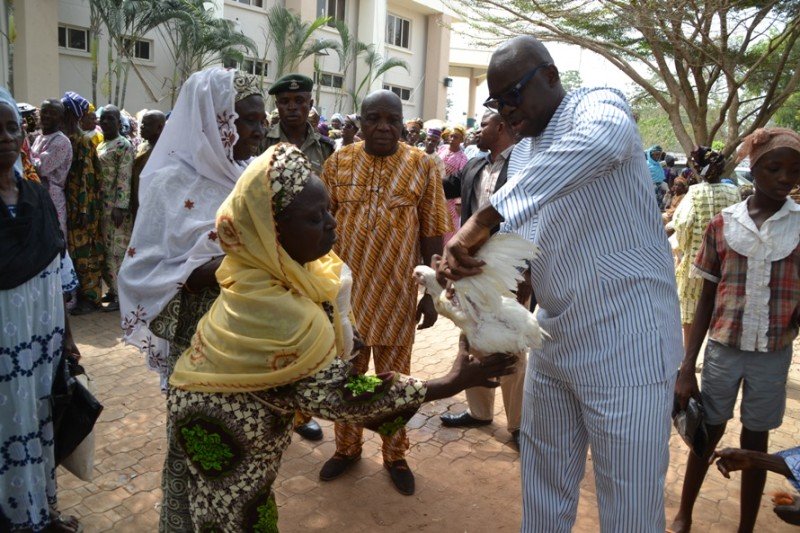There are no products in your shopping cart.
| 0 Items | £0.00 |

 ELECTION monitoring group Yiaga Africa has challenged the Independent National Electoral Commission (Inec) to monitor the distribution of essential food items known as stomach infrastructure during political campaigns.
ELECTION monitoring group Yiaga Africa has challenged the Independent National Electoral Commission (Inec) to monitor the distribution of essential food items known as stomach infrastructure during political campaigns.
Next mo nth, voters in Kogi and Bayelsa States will go to the polls to elect governors and as the campaign intensifies, the two leading parties have stepped up the distribution of essential food items. Over recent years, elections in Nigeria have been characterised by the distribution of goods like rice, cooking oil, gari, yam, chickens, salt, etc to entice voters.
Nigeria's two main parties the All Progressives Congress (APC) and the Peoples democratic Party (PDP) have both been guilty of the widespread distribution of these essential items during election campaigns. Speaking ahead of the impending polls, Samson Itodo, the executive director of Yiaga Africa, said voters had been induced in at least one in every three of the 21 local government areas (LGA) in Kogi State and all the eight in Bayelsa State.
Mr Itodo said: “Inec should come up with a robust mechanism and collaborate with both state and non-state actors to curb the menace of buying and selling of PVCs and other forms of voter inducement. Generally, voter inducement was reported in at least one in every three LGAs of the 21 LGAs in Kogi State and in all the LGAs in Bayelsa State.”
Responding to the allegation in Yenagoa, the Bayelsa State capital, Wilfred Ifogah, the head of Inec's department of voter education and publicity in the state, said the commission does not monitor their distribution. He questioned the validity of the claim, however, asking how voters could be induced when the election had not been conducted.
Mr Ifogah said: “We still have some weeks to the election, so I don’t know how Yiaga Africa came about that. Although they have their people on the field, they have not told us anything, so whatever they do, I cannot really say.
“Even before the vote-buying syndrome, they used to give out commodities such as salt, rice and other things during campaign. Maybe that is what they are doing right now that Yiaga Africa is calling voter inducement.
“Inec does not track such things. Yiaga Africa is an independent group and so, whatever their findings are, we don’t know and the only thing I know Inec does is that whenever political parties are having their major rallies, they invite the commission to observe and see how they conduct themselves and take track of certain things they are doing."
He added that there was a department in Inec that monitors election and political parties which tracks campaign funds. Mr Ifogah said the team goes round to check billboards and match them with what each party is spending on elections and later, they will come out with their own report.
Ahmed Biambo, Inec's head of voter education in Kogi State added: “Voter inducement with money or what? That is one allegation I consider to be vague and so far, the campaign in Kogi is low-key.
“I don’t know how they are inducing voters. It is only at the polling unit that you can see some forms of vote buying.”